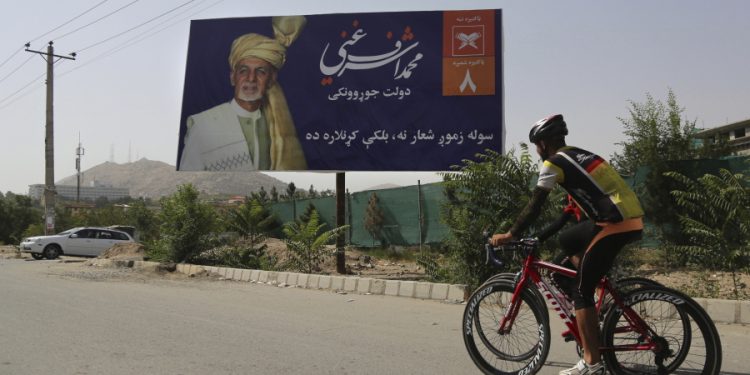Afghanistan remains a quagmire. The landlocked nation is bleeding for close to two decades and no end is in sight to the killings; and the scenario progressively worsening. President Ashraf Ghani’s first term in office ended and he is seeking a second term through the twice-postponed elections, now scheduled for September 28. Chaos reigns the hapless nation, and power plays are one too many.
The hopes raised in some quarters about a truce between the US and the Taliban fighters, with the Afghan government too standing by it, have been dashed. President Trump abruptly cancelled the scheduled talks with the religiously motivated Taliban after he found there was no end to the replay of violence and killings. His question to the Taliban: ‘If you cannot promise peace before the talks, how can you ensure that after the talks and signing of an agreement peace will prevail?’ A promise that Taliban expected from the talks was a partial withdrawal of US troops from Afghanistan. The US troops remained there in strength since 2001. This, after the Al Qaeda attacks on key installations in the US in September 2001 led to ouster of the Taliban from power and installation of a pro-US government.
With concerted US efforts, democracy had been given a chance to sprout in the mountainous nation. That does not quite seem to have worked. Warlords kept calling much of the shots even as a suave and resolute Hamid Karzai ruled the nation as President. His writ often failed to extend beyond Kabul. Some terrorist modules like the Al Qaeda were destroyed or driven out, though, with US help. In a nation where schooling itself is a far cry and a gun-culture existed among the physically well-endowed Pashtoons and other tribes, a social set-up of a different kind existed. What however kept the show going even in these times was cultivation and trading of narcotics through dubious international channels which fetched big money. Even the US played along with this scenario as it needed to plough back the huge money it kept spending for its troop deployment in the landlocked nation.
Taliban itself remains split, one side getting material support from Pakistan, which is not comfortable with a stable Afghanistan. With Russia having annexed Afghanistan at one time, the US sent in its agents like Osama bin Laden to drive out the Communists. In later years, Bin Laden turned the tables on Americans.
The Afghan Taliban is insisting that the US domination of Afghanistan must end – for the militants to re-seize the land and run it on their brand of religiosity. That could take the nation back to the era of cultural and religious overdrive marked by razing of Buddhist statues and places of worship. Under the draft agreement which Trump planned to sign now, some 5,000 more of the roughly 15,000 US troops were to be withdrawn from Afghanistan. A tame presence of US troops in Afghanistan will be invitation to more trouble and a more aggravation of the scenario there. Taliban now controls more territory than it ever did in the past, meaning that its influence is spreading.
Ashraf Ghani as president, after rule by Hamid Karzai for 13 years from end 2001, did not help change Afganistan for the better. Karzai, who had his education in India and edged closer to both India and the US as president, did a good job to the extent possible; and he’s still around to guide the people but has very little clout. Ashraf Ghani started his tenure with an attempt to turn the clock back in terms of regional relations. He attempted to cozy up to the Pakistani generals who were bent on fishing in troubled waters. For a time, he tried to build bridges with the Pakistani political establishment too in the hope that this would help restore peace in Afghanistan. He also slow-pedaled Afghanistan’s engagements with India. This energized the Taliban further, and the militants kept playing mayhem with life there.
Experience left Ashraf Ghani a bit chastened. But, Afghanistan is today in a stage of no return to normalcy. It has become a stage for both regional and international power play. The US too is at serious fault. George Bush junior, as President, sent in troops to Afghanistan and toppled the Taliban government; but he left the job unfinished and quickly shifted focus to Iraq, to unseat Saddam Hussein from power. Now, how the present US president handles the scenario is worth a watch. India is hoping against hope that the US troops will remain in strength in Afghanistan for more time as that may be the last bulwark against international Islamists who dream of taking over this part of the world. From Indonesia to Africa is a Moslem dominated world where India stands isolated.






































